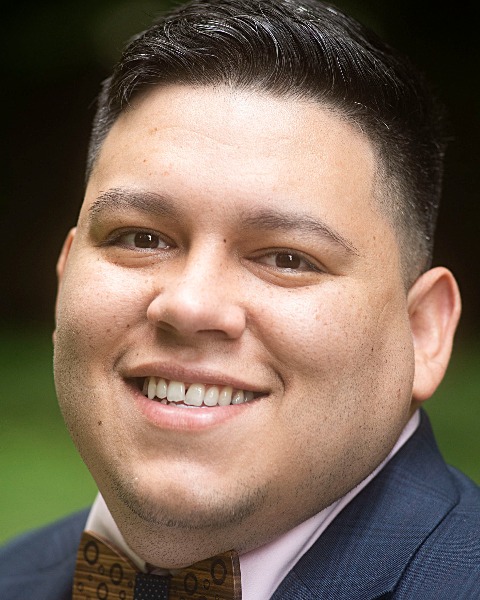Back
LGBTQIA+ and Two-Spirit
Local and Global Experiences
Trans Latina Immigrants Generating Change in the Southern US: From Local to Global
Saturday, November 12, 2022
2:30 PM – 3:00 PM
Location: Sunset

Luis R. Alvarez-Hernandez, PhD, LCSW
Assistant Professor
University of Texas Rio Grande Valley
Edinburg, Texas, United States
Author and Presenter(s)
Overview: Trans Latina immigrants utilize their individual and collective strengths to resist oppression and generate change in their countries of origin and the United States. In this qualitative study, the participants’ role as “luchadoras sociales” was possible due to their lived experiences and by building community and caring for each other.Proposal text: Trans Latina immigrants experience violence and discrimination in their countries of origin and the United States. As a result, many trans Latina immigrants have utilized their individual and collective strengths to resist oppression and generate change in their local and global communities. However, there is limited research on the lived experiences of these generators of change. The current study aimed to explore the meaning that trans Latinas make of their lived experiences as they generate change in the Southern U.S. by asking the research questions: (1) What are the lived experiences of trans Latinas generating change for their communities in the Southern U.S.?; (2) How do the multiple identities of trans Latinas influence their experiences of empowerment in the Southern U.S.?; and, (3) How do trans Latinas experience and overcome challenges? These questions were answered through an interpretive phenomenological qualitative study informed by Latina feminisms.
Six trans Latina immigrants from Georgia, Louisiana, North Carolina, and Texas were part of the study. Their testimonios were gathered through multiple semi-structured interviews in Spanish, and data were triangulated using participants’ online posts and videos. Data were analyzed using an interpretative phenomenological analysis. Three thematic patterns were constructed: (1) “Mi comunidad transgénero tiene muchas necesidades”: Trans Latina immigrants’ struggles; (2) “Me llamo luchadora social”: Being and doing social change; and (3) “Juntas todas”: Strength in caring for each other. Overall, the participants’ lived experiences were linked to their experiences with intersectional violence, discrimination, and struggles at the micro, mezzo, and macro levels. However, by building community and caring for each other, the participants overcame these challenges. Additionally, becoming luchadoras sociales and doing social change was informed by their trans, Latina, and immigrant identities.
By attending this session, participants will understand how the study’s conceptualization and findings were based on a Latina feminisms framework. Moreover, social work researchers, practitioners, and educators will be able to list how to engage in trans-led and informed strengths-based research and practice, advocate for the human rights of this group, and support systemic change that addresses the needs and struggles of the community. Finally, participants will identify how to teach content related to the needs and strengths of trans Latina immigrants.
Six trans Latina immigrants from Georgia, Louisiana, North Carolina, and Texas were part of the study. Their testimonios were gathered through multiple semi-structured interviews in Spanish, and data were triangulated using participants’ online posts and videos. Data were analyzed using an interpretative phenomenological analysis. Three thematic patterns were constructed: (1) “Mi comunidad transgénero tiene muchas necesidades”: Trans Latina immigrants’ struggles; (2) “Me llamo luchadora social”: Being and doing social change; and (3) “Juntas todas”: Strength in caring for each other. Overall, the participants’ lived experiences were linked to their experiences with intersectional violence, discrimination, and struggles at the micro, mezzo, and macro levels. However, by building community and caring for each other, the participants overcame these challenges. Additionally, becoming luchadoras sociales and doing social change was informed by their trans, Latina, and immigrant identities.
By attending this session, participants will understand how the study’s conceptualization and findings were based on a Latina feminisms framework. Moreover, social work researchers, practitioners, and educators will be able to list how to engage in trans-led and informed strengths-based research and practice, advocate for the human rights of this group, and support systemic change that addresses the needs and struggles of the community. Finally, participants will identify how to teach content related to the needs and strengths of trans Latina immigrants.
Learning Objectives:
- Describe how the study’s conceptualization and findings were based on a Latina feminisms framework.
- List how to engage in trans-led and informed strengths-based research and practice, advocate for the human rights of this group, and support systemic change that addresses the needs and struggles of the community.
- Identify how to teach content related to the needs and strengths of trans Latina immigrants.
